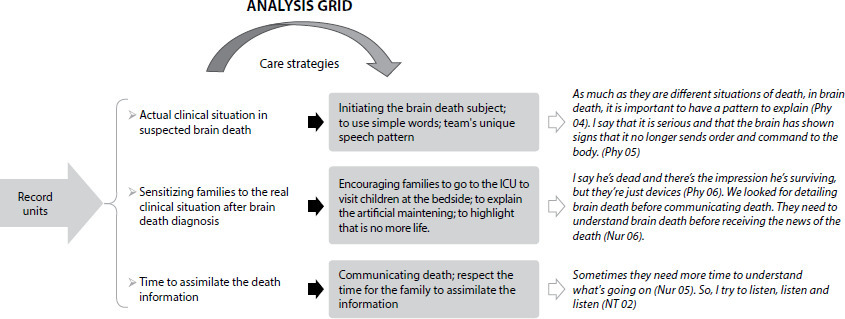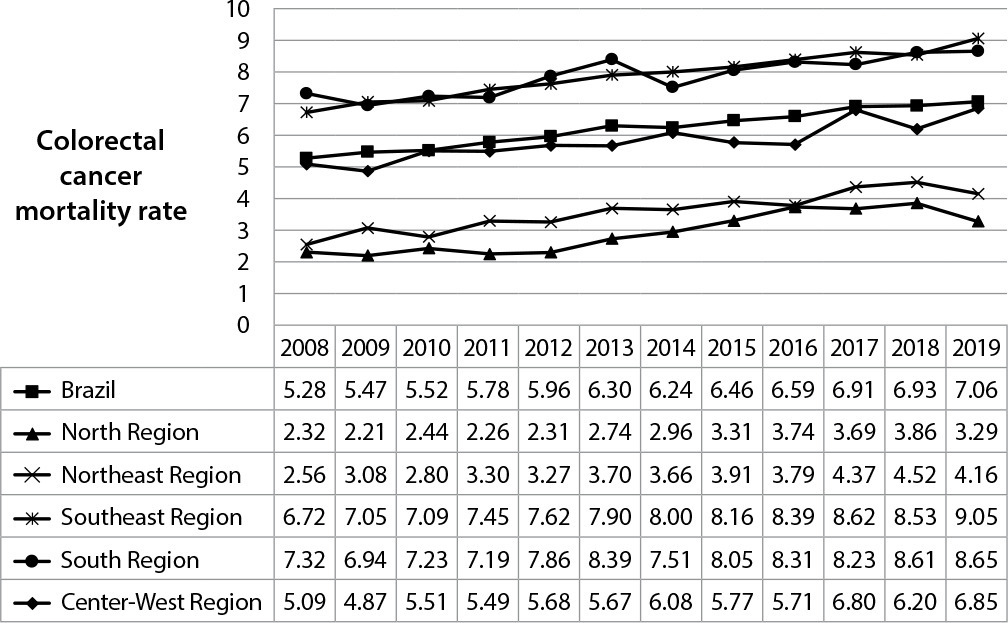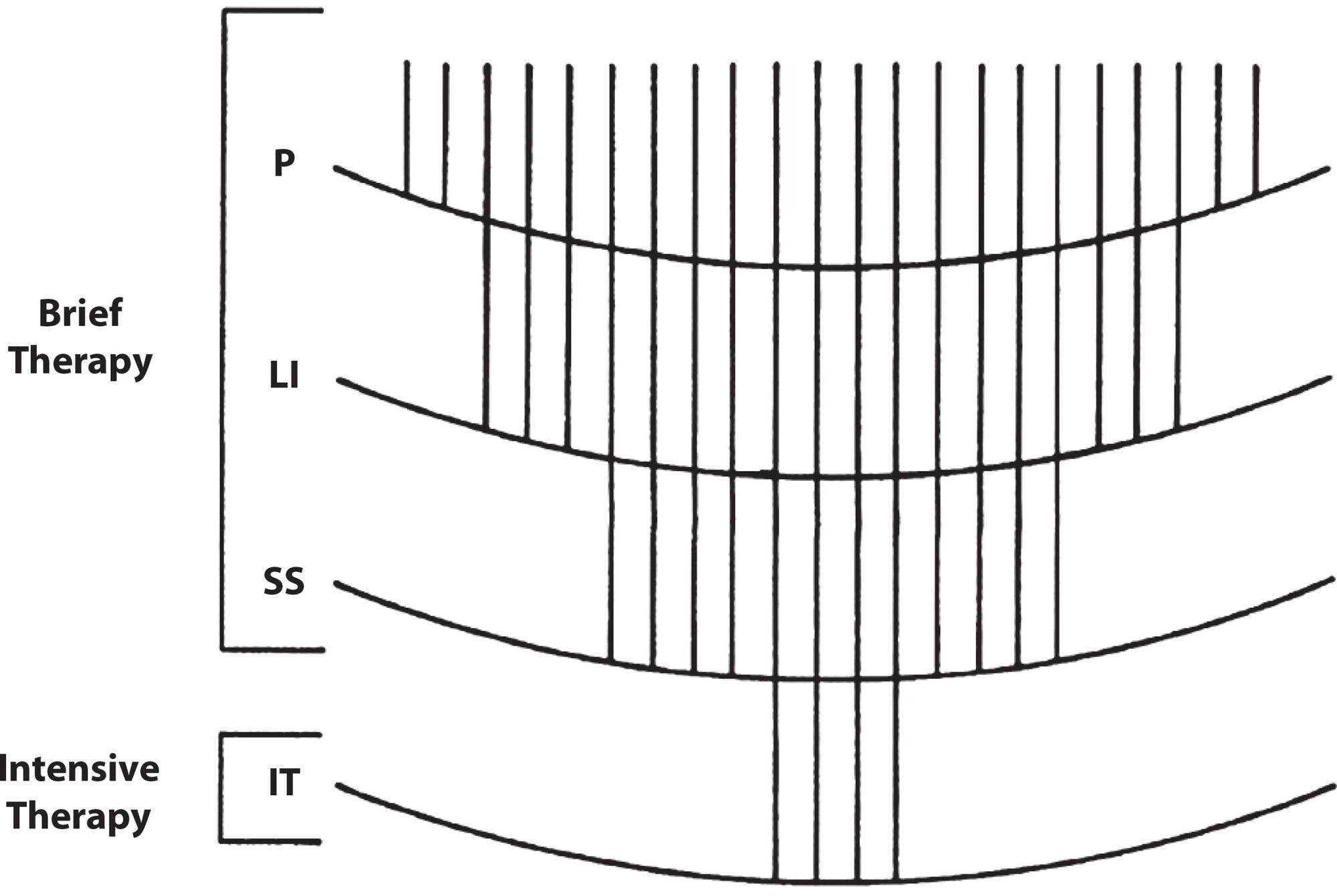-
ORIGINAL ARTICLE09-23-2022
Social entrepreneurship in the professional training in Nursing
Revista Brasileira de Enfermagem. 2022;75(3):e20220391
Abstract
ORIGINAL ARTICLESocial entrepreneurship in the professional training in Nursing
Revista Brasileira de Enfermagem. 2022;75(3):e20220391
DOI 10.1590/0034-7167-2021-0391
Views0See moreABSTRACT
Objectives:
to assess the knowledge and practices that stimulate social entrepreneurship in the professional training of Nursing students.
Methods:
qualitative exploratory-descriptive study carried out with 44 Nursing students from a University in the South Region of Brazil. Data were collected between May and August 2021, through individual online interviews. The participants were students of nursing course in the 6th semester or above, who had previously participated in teaching, research, or university outreach activities on entrepreneurship.
Results:
the data was organized and analyzed according to the thematic analysis technique and resulted in three thematic categories: Meanings of social entrepreneurship, Factors that sparked social entrepreneurship, and Recognizing oneself as an entrepreneurial nurse.
Final Considerations:
the knowledge and practices that stimulate social entrepreneurship in the professional training of Nursing students are associated with teaching, research and university outreach activities that allow concrete experiences in the living and dynamic world of communities.
-
ORIGINAL ARTICLE09-23-2022
Almanac for preventing the use of alcohol and other drugs among adolescents: construction and validity
Revista Brasileira de Enfermagem. 2022;75(3):e20220118
Abstract
ORIGINAL ARTICLEAlmanac for preventing the use of alcohol and other drugs among adolescents: construction and validity
Revista Brasileira de Enfermagem. 2022;75(3):e20220118
DOI 10.1590/0034-7167-2022-0118
Views0See moreABSTRACT
Objectives:
to build and validate an almanac to prevent the use of alcohol and other drugs among adolescents.
Methods:
a methodological study, based on the adaptation of Echer’s stages and on Culture Circles. The Content Validity Index and the Concordance Index were used for validity.
Results:
problematization in Culture Circles and literature review supported the elaboration of an almanac. In validity with eleven health judges, the material obtained a global Content Validity Index of 0.73 in the first version and 0.84 in the second version, with validation with five judges. In terms of concordance, the 95% value was obtained with four technical judges and 86.2% with nine participants from the target audience.
Conclusions:
the constructed and validated almanac has playful, dialogic and problematizing potential.

-
ORIGINAL ARTICLE09-23-2022
Brain death communication with parents of children and adolescents: care strategies
Revista Brasileira de Enfermagem. 2022;75(3):e20210943
Abstract
ORIGINAL ARTICLEBrain death communication with parents of children and adolescents: care strategies
Revista Brasileira de Enfermagem. 2022;75(3):e20210943
DOI 10.1590/0034-7167-2021-0943
Views0See moreABSTRACT
Objectives:
to identify care strategies developed by professionals from critically ill patients’ units in communicating BD with parents of children and adolescents.
Methods:
an exploratory and descriptive research with a qualitative approach, carried out in two health institutions between October and December 2019, through semi-structured interviews. Data analysis took place through content analysis.
Results:
twenty-one professionals participated. Three care strategies were identified: actual clinical situation in suspected brain death; sensitizing families to the real clinical situation after brain death diagnosis; and time to assimilate the death information.
Final Considerations:
the care strategies for communicating brain death to families identified in this study present the possibility of subsidizing health managers in training and support promotion for professionals in care practice. Moreover, they can be incorporated and validated in the care practice of the studied context.

-
ORIGINAL ARTICLE09-23-2022
Effects of multidisciplinary rounds and checklist in an Intensive Care Unit: a mixed methods study
Revista Brasileira de Enfermagem. 2022;75(3):e20210934
Abstract
ORIGINAL ARTICLEEffects of multidisciplinary rounds and checklist in an Intensive Care Unit: a mixed methods study
Revista Brasileira de Enfermagem. 2022;75(3):e20210934
DOI 10.1590/0034-7167-2021-0934
Views0See moreABSTRACT
Objectives:
to analyze the implementation of multidisciplinary checklist-directed rounds before health indicators and multidisciplinary team perception of an Intensive Care Unit.
Methods:
a mixed methods study, with an explanatory sequential design, carried out at a hospital in southern Brazil, from September 2020 to August 2021. The integration of quantitative and qualitative data was combined by connection.
Results:
after the implementation of checklist-directed rounds, there was a significant reduction in hospital stay from ventilator-associated pneumonia, urinary tract infection and daily invasive device use. The investigated practice is essential for comprehensive care, harm reduction, effective work and critical patient safety.
Conclusions:
the multidisciplinary rounds with checklist use reduced data on health indicators of critically ill patients and was considered a vital practice in the intensive care setting.
-
REFLECTION09-23-2022
Legislation and quality of nursing education in the context of the COVID-19 pandemic
Revista Brasileira de Enfermagem. 2022;75(3):e20210825
Abstract
REFLECTIONLegislation and quality of nursing education in the context of the COVID-19 pandemic
Revista Brasileira de Enfermagem. 2022;75(3):e20210825
DOI 10.1590/0034-7167-2021-0825
Views0See moreABSTRACT
Objectives:
to reflect on the governmental normative acts issued for higher education during the COVID-19 pandemic and on the repercussions of these acts on the quality of nursing education in Brazil.
Methods:
this is a reflection on the repercussions for the quality of nursing education, based on the normative acts applied to higher education, enacted from March to December 2020, available on the Ministry of Education website and in the current literature on the subject anchored in the National Curriculum Guidelines for the Undergraduate Nursing Course.
Results:
educational legislation, in the context of the pandemic, distanced education from the world of work, as well as from the quality of training established in the guidelines.
Final Considerations:
remote teaching in nursing makes it difficult to train professionals with the capacity to effectively teach and learn in the real world of care and health promotion in the Unified Health System.
-
09-19-2022
Subjetivação dos profissionais de saúde no fim da vida e morte no serviço domiciliar
Revista Brasileira de Enfermagem. 2022;75(2):e20210684
Abstract
Subjetivação dos profissionais de saúde no fim da vida e morte no serviço domiciliar
Revista Brasileira de Enfermagem. 2022;75(2):e20210684
DOI 10.1590/0034-7167-2021-0684
Views0See moreRESUMEN
Objetivos:
analizar los modos de subjetivación de los profesionales de la salud hacia el final de la vida y la muerte en un servicio de atención domiciliaria.
Métodos:
investigación cualitativa realizada en un servicio de atención domiciliaria en un hospital escuela en el sur de Brasil, con 12 profesionales de la salud. Para la recolección de datos se utilizó la observación participante y entrevistas semiestructuradas, de abril a septiembre de 2018. Los datos fueron analizados a partir del concepto de poder y subjetivación de Foucault.
Resultados:
los profesionales son sensibilizados por discursos morales, espirituales y de cuidados paliativos, así como por vivencias que los constituyen sujetos que modifican sus modos de vida y ejercicio profesional a partir de la relación con la muerte.
Consideraciones Finales:
la red discursiva de los cuidados paliativos es interiorizada por los profesionales, que realizan sus prácticas con conductas encaminadas a promover “una buena muerte”.
-
ORIGINAL ARTICLE09-19-2022
Colorectal cancer mortality in women: trend analysis in Brazil and its regions and states
Revista Brasileira de Enfermagem. 2022;75(2):e20210751
Abstract
ORIGINAL ARTICLEColorectal cancer mortality in women: trend analysis in Brazil and its regions and states
Revista Brasileira de Enfermagem. 2022;75(2):e20210751
DOI 10.1590/0034-7167-2021-0751
Views0See moreABSTRACT
Objectives:
to analyze colorectal cancer mortality trends in women in Brazil and its regions and states.
Methods:
ecological, time-series study with trend analysis of deaths caused by colorectal cancer in women in Brazil and its regions and states between 2008 and 2019. Polynomial regression was used to treat the data.
Results:
48,225 deaths of women caused by colorectal cancer were examined. There was an increasing mortality trend in Brazilian women, with regional differences that resulted from socioeconomic, political, and cultural inequalities. The South Region stood out with the highest rate (7.32) in 2008, which increased to 8.65 in 2019, followed by the Southeast Region, whose rates were 6.72 and 9.05 in 2008 and 2019, respectively.
Conclusions:
colorectal cancer mortality increased, which indicates the need to expand public policies oriented toward screening and early diagnosis of colorectal cancer in women.

-
ORIGINAL ARTICLE09-19-2022
Health professionals’ subjectivation towards end of life and death in home care service
Revista Brasileira de Enfermagem. 2022;75(2):e20210684
Abstract
ORIGINAL ARTICLEHealth professionals’ subjectivation towards end of life and death in home care service
Revista Brasileira de Enfermagem. 2022;75(2):e20210684
DOI 10.1590/0034-7167-2021-0684
Views0See moreABSTRACT
Objectives:
to analyze the modes of subjectification of health professionals towards end of life and death in a home care service.
Methods:
this is qualitative research carried out in a home care service at a teaching hospital in southern Brazil, with 12 health professionals. Participant observation and semi-structured interviews were used for data collection, from April to September 2018. Data were analyzed based on Foucault’s concept of power and subjectivation.
Results:
professionals are sensitized by moral, spiritual and palliative care discourses, as well as experiences that constitute them subjects who modify their ways of life and professional practice based on the relation with death.
Final Considerations:
the discursive network of palliative care is internalized by professionals, who carry out their practices with behaviors aimed at promoting “a good death”.
-
ORIGINAL ARTICLE12-07-2020
Sarcopenia screening in elderly in primary health care: nurse knowledge and practices
Revista Brasileira de Enfermagem. 2020;73:e20200421
Abstract
ORIGINAL ARTICLESarcopenia screening in elderly in primary health care: nurse knowledge and practices
Revista Brasileira de Enfermagem. 2020;73:e20200421
DOI 10.1590/0034-7167-2020-0421
Views0See moreABSTRACT
Objective:
Describe the knowledge and practices of the Primary Health Care nurse on sarcopenia screening in the elderly.
Methods:
Qualitative study conducted with 24 Primary Health Care nurses. The data was collected through semi-structured interviews, recorded and later transcribed. The speeches were grouped in thematic categories, later analyzed, supported by Paulo Freire’s reference.
Results:
The findings showed that the primary care nurses’ knowledge of sarcopenia screening in the elderly was incipient and fragile. This reality is reflected in a gap in practice, although some instruments already require the registration of characteristics indicative of sarcopenia, such as the evaluation of the calf circumference.
Final Considerations:
The need to train nurses to perform sarcopenia screening and to implement a promotional and preventive care plan, which will result in improving the quality of life of the elderly assisted in Primary Care, was highlighted.
-
ORIGINAL ARTICLE02-17-2020
Social network of children with cronic disease: knowledge and practice of nursing
Revista Brasileira de Enfermagem. 2020;73(2):e20180371
Abstract
ORIGINAL ARTICLESocial network of children with cronic disease: knowledge and practice of nursing
Revista Brasileira de Enfermagem. 2020;73(2):e20180371
DOI 10.1590/0034-7167-2018-0371
Views0See moreABSTRACT
Objectives:
To identify the knowledge and practice of primary care nurses about the social network approach for families of children with chronic diseases.
Methods:
Qualitative research, conducted by means of interviews with 23 family health nurses, from one municipality in Paraíba and one in Rio de Janeiro, from June to July of 2017. The data were interpreted using thematic analysis.
Results:
Social network meant institutional support offered by services outside the unit, and socioeconomic problems involved the family context. In practice, nurses find it difficult to provide comprehensive care and establish ties with families. When referring to other professionals, a weakness in the counter-referral to the family health unit is found.
Final considerations:
Some gaps were found regarding the knowledge and practice of nurses regarding the social network approach, which requires professional training to strengthen social relationships and the necessary support for families of children with chronic diseases.
-
ORIGINAL ARTICLE10-21-2019
Inclusion of mental health in primary health care: care strategy in the territory
Revista Brasileira de Enfermagem. 2019;72(6):1677-1682
Abstract
ORIGINAL ARTICLEInclusion of mental health in primary health care: care strategy in the territory
Revista Brasileira de Enfermagem. 2019;72(6):1677-1682
DOI 10.1590/0034-7167-2018-0806
Views0See moreABSTRACT
Objective:
To analyze the strategies, challenges and possibilities of the articulation between mental health and primary health care from the perspective of health managers.
Method:
Exploratory, qualitative research carried out with 28 managers of mental health and primary care. The data were collected through semi-structured interviews between July and November 2013 and submitted to thematic content analysis.
Results:
The inclusion of mental health actions in primary care made it possible, in the view of managers, to increase users’ access to the care they need. This care strategy allows the extension of care practices in the territory, with matrix support as the main tool for the implementation of this care strategy.
Final considerations:
The articulation between primary care and mental health is a powerful device for psychosocial care, but it demands a new conformation of the Psychosocial Care Centers (Caps) and primary care services.
-
06-11-2021
Prevention of facial injuries caused by personal protective equipment during the COVID-19 pandemic
Revista Brasileira de Enfermagem. 2021;74:e20201219
Abstract
Prevention of facial injuries caused by personal protective equipment during the COVID-19 pandemic
Revista Brasileira de Enfermagem. 2021;74:e20201219
DOI 10.1590/0034-7167-2020-1219
Views0See moreABSTRACT
Objective:
Develop and validate a leaflet to guide health professionals in preventive measures related to injuries caused by the use of personal protective equipment during the COVID-19 pandemic.
Methods:
For the construction of the brochure, an integrative review was carried out in the main databases. The evaluation of the leaflet was made by 59 health professionals (nurses, physiotherapists, and doctors), using the Delphi technique.
Results:
In the first evaluation cycle, the items in the brochure were considered by the judges to be “inadequate” to “adequate”; the Content Validity Index was 0.80-1.0. After the adjustments suggested by the judges were implemented, the leaflet was sent back to the second evaluation cycle, in which all items were considered “adequate”, resulting in a Content Validity Index of 1.0.
Conclusion:
The developed brochure has content validity and can assist health professionals in preventing injuries caused by the use of personal protective equipment the developed brochure has content validity and can assist health professionals in preventing injuries caused by the use of personal protective equipment.

-
ORIGINAL ARTICLE07-08-2020
Self-efficacy in elderly with type 2 Diabetes Mellitus
Revista Brasileira de Enfermagem. 2020;73:e20180980
Abstract
ORIGINAL ARTICLESelf-efficacy in elderly with type 2 Diabetes Mellitus
Revista Brasileira de Enfermagem. 2020;73:e20180980
DOI 10.1590/0034-7167-2018-0980
Views0See moreABSTRACT
Objective:
to analyze the self-efficacy of elderly with type 2 diabetes mellitus and the relationship with sociodemographic, clinical, knowledge, and attitude variables.
Method:
a cross-sectional quantitative study conducted with 256 elderly people enrolled in Family Health Strategies. Data were obtained through interviews. Descriptive statistical analysis and multiple linear regression model were performed (p <0.05).
Results:
female, 69.95-year mean age, white skin color, 4-7 years of schooling, living with a partner, retirees, low individual monthly income, 6 to 15 years of illness, Catholics, living with children (with or without spouse). The elderly’s low knowledge and negative attitude prevailed. Self-efficacy was associated with attitude and knowledge in the domains “General and Specific Diet”, “Physical Exercise” and “Blood Glucose”.
Conclusion:
self-efficacy investigations in type 2 Diabetes Mellitus management in the elderly are important and encourage treatment adherence.
-
ORIGINAL ARTICLE09-16-2019
Knowledge of nursing student on the prevention of sexually transmitted infections
Revista Brasileira de Enfermagem. 2019;72(5):1145-1152
Abstract
ORIGINAL ARTICLEKnowledge of nursing student on the prevention of sexually transmitted infections
Revista Brasileira de Enfermagem. 2019;72(5):1145-1152
DOI 10.1590/0034-7167-2017-0801
Views0See moreABSTRACT
Objective:
To identify the knowledge and self-care actions taken by nursing undergraduate students of a Federal University of the South of Brazil, against Sexually Transmitted Infections.
Method:
Exploratory qualitative study, conducted 40 interviews with undergraduate students at the beginning and end of the course. The analysis was thematic, resulting in three categories.
Results:
Knowledge about the subject is a decisive factor for self-care, and the more knowledge, the greater the prevention. The dissemination of knowledge of students at the end of the course not only influences self-care but also health promotion in the social sphere.
Final considerations:
Knowledge is important in self-care and caring for others. The dissemination of knowledge becomes evident according to the complexity of the course. Stable relationships may interfere with the use or disuse of condoms in sexual relationships, a misnomer present in today’s society.
-
REFLECTION09-29-2022
Health care of deaf persons during coronavirus pandemics
Revista Brasileira de Enfermagem. 2022;75:e20201036
Abstract
REFLECTIONHealth care of deaf persons during coronavirus pandemics
Revista Brasileira de Enfermagem. 2022;75:e20201036
DOI 10.1590/0034-7167-2020-1036
Views0See moreABSTRACT
Objective:
To reflect about the barriers experienced by the deaf population during the COVID-19 pandemic, the proposals to overcome communication barriers in health care and the role of public policies in effecting the social inclusion of deaf people.
Methods:
Reflection based on studies on health care for deaf people, the COVID-19 pandemic and public accessibility policies.
Results:
The global crisis of COVID-19 has deepened pre-existing inequalities in the world, in addition to highlighting the vulnerability of people with disabilities, including deaf. Government, institutional and social initiatives to mitigate difficulties in communicating to deaf people have been made, but they are still insufficient to guarantee protection for them in this pandemic and full inclusion in health care.
Final considerations:
Social inclusion, supported by law, and the linguistic accessibility of deaf people still need to generate broad and concrete actions so that deaf people can enjoy their rights as citizens.
-
EXPERIENCE REPORT08-19-2019
PLISSIT model: sexual counseling for breast cancer survivors
Revista Brasileira de Enfermagem. 2019;72(4):1109-1113
Abstract
EXPERIENCE REPORTPLISSIT model: sexual counseling for breast cancer survivors
Revista Brasileira de Enfermagem. 2019;72(4):1109-1113
DOI 10.1590/0034-7167-2018-0525
Views0See moreABSTRACT
Objective:
Reporting the experience of use of the PLISSIT model as tool for the nursing care of breast cancer survivors with sexual dysfunction.
Method:
case study developed from January to August 2017, in the outpatient mastology clinic and sexuality service of a maternity in Fortaleza, Ceará, Brazil, with 15 breast cancer survivors.
Results:
sexual counseling sessions were conducted using the PLISSIT model to address sexual issues, highlighting the particularities of women who experience survival after the treatment of breast cancer.
Final considerations:
the model used in the practice of nursing care is customary and allows identifying issues experienced by women, as it has easy availability and practicality for use by nursing professionals, helping to address sexual matters with greater tranquility.

Search
Search in:
Nuvem de Tags
Adolescente (85) Atenção Primária à Saúde (239) COVID-19 (91) Criança (91) Cuidados de Enfermagem (269) Educação em Enfermagem (151) Educação em Saúde (139) Enfermagem (930) Enfermagem Pediátrica (86) Estudantes de Enfermagem (77) Estudos de Validação (131) Família (87) Idoso (208) Promoção da Saúde (99) Qualidade de Vida (104) Saúde do Trabalhador (86) Saúde Mental (145) Saúde Pública (82) Segurança do Paciente (150) Tecnologia Educacional (100)



